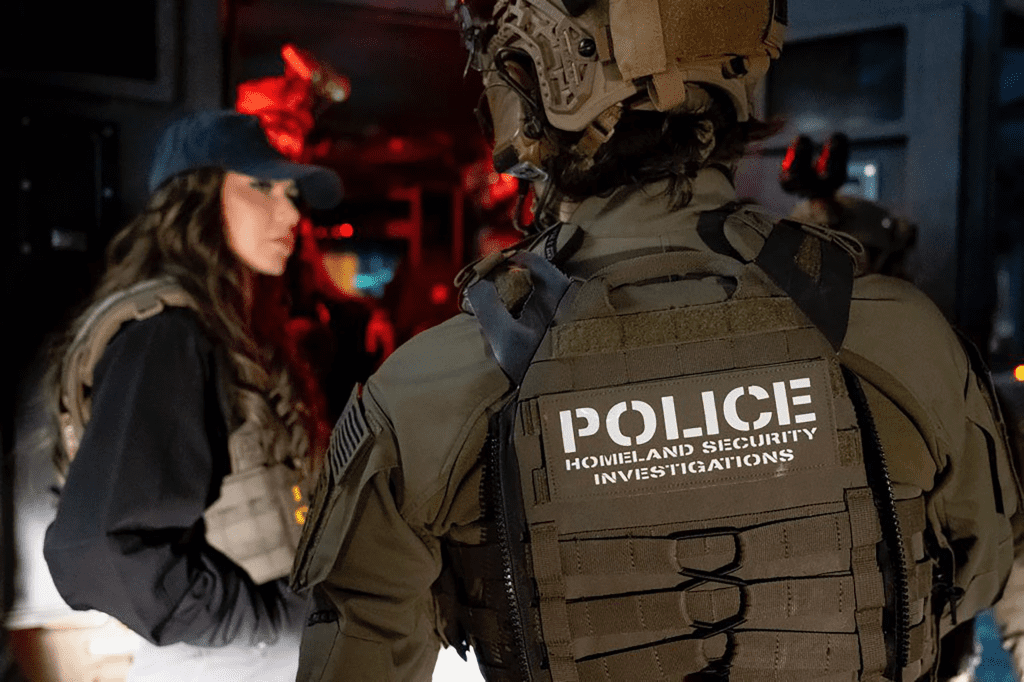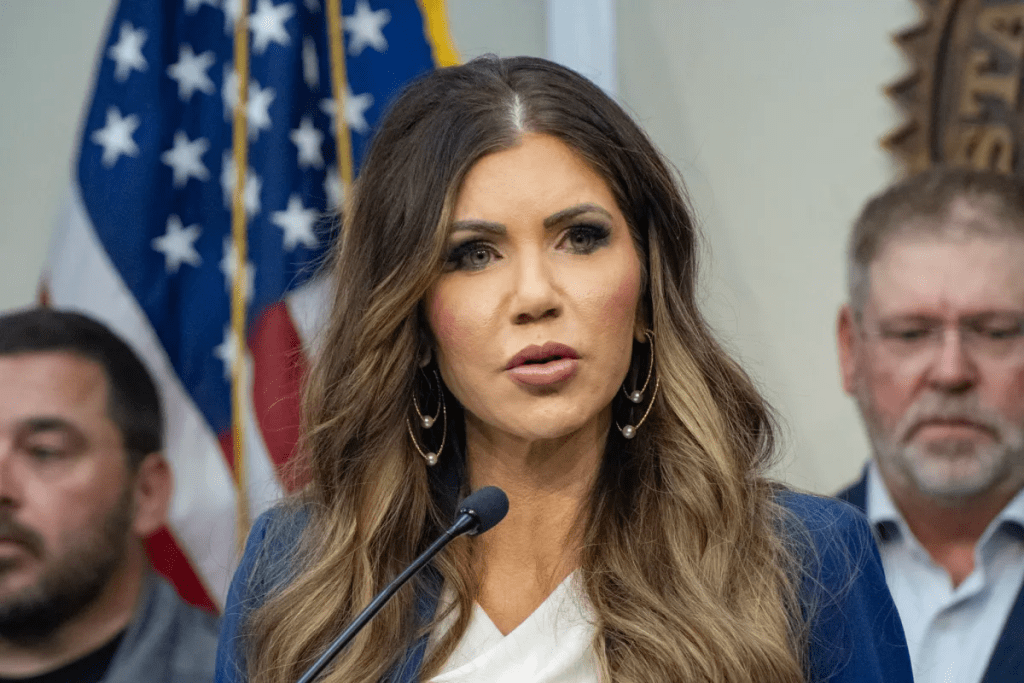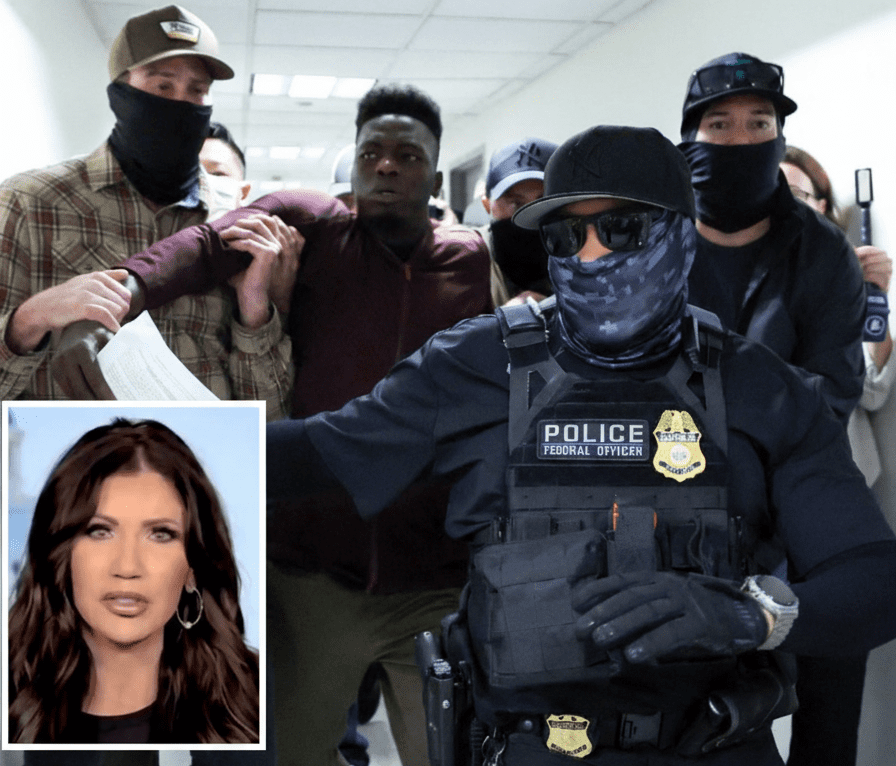“Dangerous and Unprecedented”: Homeland Security Warns Cartels Are Offering $10,000 to Kill Federal Immigration Agents
They say danger comes in many forms, but few would imagine a cartel putting a price tag on an immigration agent’s head. Yet that’s exactly what Homeland Security Secretary Kristi Noem revealed this week — a revelation that chills the spine and forces us to reckon with how fragile safety can be, even for those sworn to protect us.
In a Sunday morning interview on Fox & Friends Weekend, Noem dropped the bombshell: some cartels have issued bounties of $10,000 to kill federal immigration agents, and $2,000 to capture them alive. She said these criminal networks even circulated personal photos and identifying information among their cells. It’s a level of threat seldom admitted by government officials, and the weight of that admission feels heavy.

She called the situation “dangerous and unprecedented,” explaining that these are not idle threats. These are coordinated efforts to intimidate, to strike fear, and to disrupt the work of the very agents trying to enforce law at the borders. During her remarks, she acknowledged that the offenders are not likely to be lone wolves, but “gangs, cartel members and known terrorist organizations” seeking to protect their criminal networks.
Noem was careful not to specify which agencies or which agents are being targeted. She declined to name whether the threats are against Border Patrol, ICE, or other federal immigration officers. But she stressed the seriousness of what’s happening — the sharing of personal images, the doxxing of agents, and the explicit price on their lives.

This revelation comes at a tense moment in the national debate around immigration, border security, and law enforcement. It brings a new layer of urgency: agents doing their daily work could be under threat — not just from smuggling operations or dangerous terrain, but from organizations that want them eliminated. For the families of these agents, the disclosure must feel like someone pulled back a curtain and revealed a horror they had suspected but never confirmed.
Across Washington and federal agencies, it’s certain conversations are happening behind closed doors — about protection, about anonymity, about how to keep agents safe in the field. What kind of security measures are enough when the enemy is willing to post bounties? Who investigates such threats when some of the forces under danger are themselves law enforcement? It’s a delicate, terrible balance.

Public reaction has been mixed: shock, concern, disbelief. For some, it will validate longstanding fears about cartel boldness and reach. For others, it may raise questions about oversight, accountability and the need for stronger safeguards. But few will deny the gravity of the claim — lives might really be at stake.
In the weeks to come, more details may emerge. Which agents were threatened? Which cartels? How will the government respond? Noem’s admission seems to be as much a warning — to those in power and those in the field — as it is a public alert. It reminds us that those who carry badges are not immune to danger, and that sometimes the front line is closer than we think.

In a world where violence often hides behind shadows, spilling into daylight only when someone forces it out, this news forces us to look. If the guardians of law can be hunted, what does that say about the world they are guarding?


